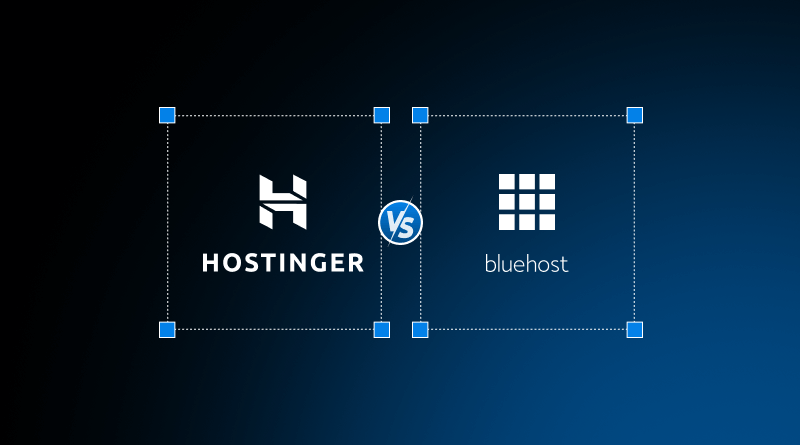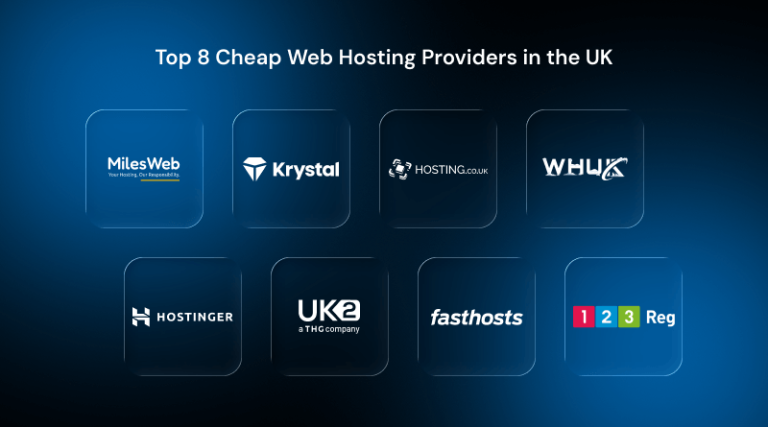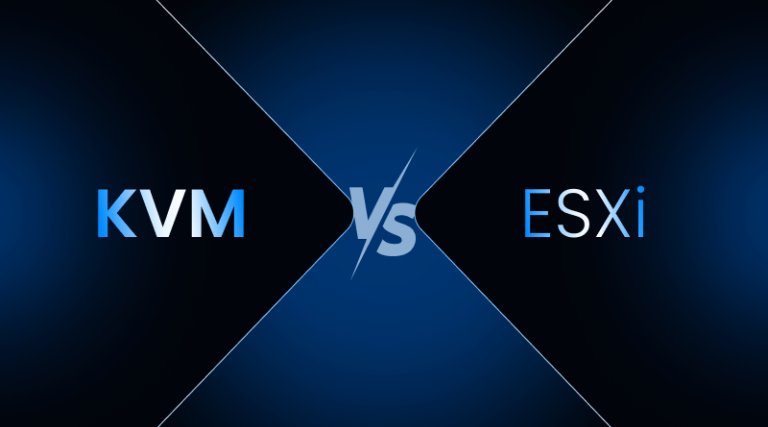Did you know that a 1-second page delay can send conversion rates down to 7%? In the internet economy, where every millisecond determines UX and dollars, the web host’s dependability is the key to the qualitative success of the website. Hostinger and Bluehost are popular options in the web hosting industry, and they have consistently been among the best. For users planning to build or scale a WordPress site, a clear understanding of Hostinger vs Bluehost for WordPress helps clarify which platform aligns better with long-term goals and technical comfort.
In this comparison of Bluehost and Hostinger, we will look into important aspects, including pricing and value, features, customer support, performance metrics, and usability, to understand which host provides the best combination of speed, reliability, and value for your money. Whether you are building your first WordPress website or growing your business online, this detailed comparison provides clarity on which provider you can trust and, more importantly, where to direct your money.
For those considering other alternative web hosting options, MilesWeb is a strong option. MilesWeb vs. Hostinger shows MilesWeb is the best Hostinger alternative with competitive pricing, strong performance, and a simple mPanel. This makes MilesWeb a viable option for those wanting affordability and traditional control.
Similarly, in MilesWeb vs. Bluehost comparison, MilesWeb (unmatched Bluehost alternative) is also great for reliable uptime, quick loading times, and supportive customer service, which are all slightly lower than Bluehost at renewal. MilesWeb offers great ease of use and speed, which is why it is a great addition to your options. This is coupled with a long-lasting value focused on your website.
Table Of Content
The Contenders: Hostinger vs. Bluehost
Before getting into the specifics, it is good to know who the players are and what makes them different in the web hosting field. Both Hostinger and Bluehost have established very strong brands, though each from a different perspective – one from innovation and cost management, and the other from dependability and authority on WordPress.
What is Hostinger?

Starting as a small web hosting company in Lithuania in 2004, Hostinger has grown to be one of the most popular hosting companies in the world and now hosts over 29 million websites in over 150 countries.
Hostinger became popular for its low pricing and highly optimized hosting infrastructure that provides premium-level performance for entry-level costs. As a disruptor in the hosting industry, Hostinger provides LiteSpeed servers and SSD storage for even its cheapest packages, crossing industry standards and providing cutting-edge technology that is typically only available for higher plans.
- Key Selling Point
Hostinger’s proprietary modern control panel, hPanel, is one of the company’s biggest differentiators and is designed to ease beginners into website management. Hostinger is designed for user performance to the point of hPanel performance optimizations like built-in LiteSpeed caching, automated Cloudflare CDN integration, and even backups to streamline the hosting user experience, and it also includes simplicity for beginners.
- Target User
This is best suited for budget users, beginners, and even startups looking for simple and affordable options to initiate an online presence. Personal blog and portfolio hosting, and small business websites, emphasize speed and simplicity and low cost for those who need an affordable option. Hostinger is designed for those who value simplicity and modern hosting on the console.
What is Bluehost?
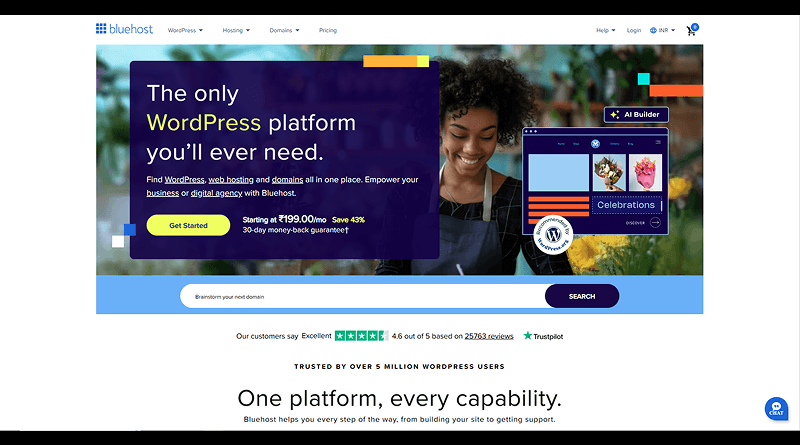
Bluehost has been a prominent figure in the web hosting industry since its founding in 2003 in Utah, USA. It is one of the most recommended web hosting services, and this has cemented its reputation with the WordPress community. Bluehost has a reputation for providing excellent service with its dependable infrastructure and dedicated hosting environment, allowing it to be a reliable choice for millions of websites around the world.
- Key Selling Point
Dependability is Bluehost’s strongest selling point, along with its seamless integration with WordPress and user-friendly cPanel. Users can install WordPress with just one click, along with automated WordPress updates and multiple advanced WordPress features, like staging environments and caching for advanced performance. Most Bluehost packages also include a free domain, an SSL certificate, and 24/7 phone support, which is friendly to small- to medium-sized business owners due to reliable service and support.
- Target User
Bluehost is for entrepreneurs and small- to medium-sized businesses that use WordPress. They want a hosting service provider with a proven track record. It is best for people who appreciate a traditional cPanel setup, great uptime, and easily reachable support, especially for those planning to build their website primarily on WordPress.
Related Read: Top 10 Best Web Hosting Providers
Hostinger vs. Bluehost: Comparing Top Specs
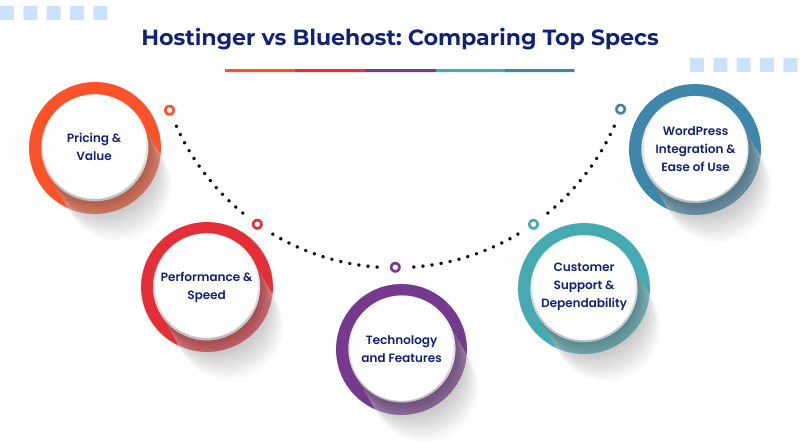
– Pricing & Value
Often, the introductory price is the main attraction when selecting a web host, but eventually your selection should be considering freebies, renewal prices, and long-term costs to determine whether the initial price is a bargain or a burden. This is where we discuss the main differentiators. A closer look at Hostinger vs Bluehost pricing shows that Hostinger maintains more predictable renewals, while Bluehost’s higher post-introductory rates can increase long-term expenses.
| Provider | Starting Plan | Promotional Rate | Tenure | Intro Rate Benfits |
| Hostinger | Single Web Hosting | ~£0.85/month | 48 months (4 years) | SSD storage, free SSL, 1 website, hPanel interface |
| Bluehost | Basic Plan | ~£1.61/month | 36 months (3 years) | Free domain (1st year), free SSL, cPanel interface |
The renewal rates have caught many users by surprise, and that is because, within the same promotional period, those rates rise significantly.
For pricing, Hostinger and Bluehost both consider promotional pricing, renewal pricing, and the extras included. Hostinger is known to make reasonable renewal rate increases. Even after the initial term of the contract, renewal pricing on the Basic plan stays below £4.75/month. This is a great price for long-term customers. On the other hand, Bluehost users have significantly higher renewal pricing to migrate to £8.55/month after 36 months, and that generates a couple of thousand rupees in renewal pricing surprises.
Both web hosts are providing a free domain (for the first year) and SSL certificates to every host account. Hostinger is providing free website migration and email accounts on even the bottom-tier entry plans. This is a great beginner offer. Bluehost does not offer as much, but they are providing additional integration and phone support.
– Performance & Speed
Uptime and speed are crucial for web hosting. Even seconds matter for conversions and SEO rankings. Hostinger and Bluehost claim solid performance, but the technologies each company uses are different. In real-world usage, Hostinger vs Bluehost performance often favors Hostinger for global audiences because of its distributed data centers and caching technology.
Hostinger guarantees a 99.9% uptime and uses LiteSpeed servers. They are very efficient with low latency and excellent caching. Their Time to First Byte (TTFB) is consistently under 500 ms because of SSD-only storage, servers with built-in caching, and the Cloudflare CDN. Also, Hostinger has data centers in the USA, the UK, the Netherlands, Singapore, India, and Brazil, which means quicker load times for the global audience.
On the contrary, the primary Bluehost servers are a combination of Apache and NGINX, which are reliable but also, in general, slower than LiteSpeed. Bluehost also has North American data centers, which are best for North American users. It does provide caching but uses WordPress plugins (which are designed for lower-tier systems) and optimizations that are meant for higher tiers.
– Technology and Features
A great hosting provider deserves more than just mention of fast servers. It is the combination of the right tools and technology, and the appropriate security, that enables effortless website management. When comparing hosting tools and infrastructure, Hostinger vs Bluehost features reveal two different approaches: modern simplicity vs traditional control.
- Control Panel
Hostinger provides hPanel. hPanel is clean and intuitive and is made with beginners in mind. It modernizes and streamlines the navigation, making it simple and efficient for tasks such as managing domains, backups, and accessing files. In contrast, Bluehost uses cPanel, the industry standard. While it provides familiarity and flexibility, it can also be cluttered and even overwhelming for first-time users.
- Storage & Bandwidth
Hostinger’s plans come with SSD storage and have fair-use bandwidth. This means your data retrieval will be faster and performance consistent. Bluehost advertises “unmetered” storage and bandwidth available on most plans, but under heavy traffic, the “unmetered” bandwidth actually be quite slow.
- Backups
Hostinger provides users the ability to restore their websites in the instance of an issue with weekly or daily backups, depending on their plan. Bluehost provides daily backups through their CodeGuard service as well, but it is often an extra charge and not built in.
- Security
All companies provide an SSL certificate, DDoS protection, and WAF. Additionally, Hostinger provides malware scanning and Cloudflare CDN for improved security and global content distribution.
– Customer Support & Dependability
In terms of customer support for Hostinger and Bluehost, both show support 24/7/365, yet the manners and responsiveness vary drastically. Bluehost gives support by live chat and phone, which appeals to users willing to have a verbal conversation. Hostinger emphasizes the live chat feature and a strengthened ticketing system. This system makes sure that the user query, whether complaint or question, that is addressed is logged, tracked, and resolved before the user moves on.
- Knowledge Base
In terms of a knowledge base, Hostinger holds a competitive edge, having properly arranged knowledge bases that have information typed out in tutorials and well-drawn guides and placed in videos. This help center is also well constructed, but more users seem to find it difficult to navigate, and more help is placed on pushing to upgrade.
- Real-World Experience
In the real world, user feedback is that Hostinger responds to live chat in less than a minute, while the phone system for Bluehost has longer wait times to speak with support, especially during peak hours. Hostinger was also noted by users for having positive live chat support for helping users solve problems.
– WordPress Integration & Ease of Use
With a Hostinger vs. Bluehost case study, both platforms strongly support WordPress users but in distinct ways. Bluehost, on the other hand, is the recommended platform by WordPress.org and offers one click installations, automatic WordPress updates, and seamless integration with the WordPress dashboard.
The Hostinger vs Bluehost for WordPress comparison becomes especially relevant for users choosing between LiteSpeed-based optimization and WordPress.org-recommended hosting. This makes the platform more beginner-friendly with a straightforward setup wizard that guides users from installation to customization.
- Hostinger
Hostinger also gives customers access to LiteSpeed-optimized WordPress hosting, which helps improve performance and speed. Its AI-powered website builder and custom hPanel interfaces improve over cPanel to facilitate WordPress management. Hostinger also provides WordPress dashboards that include staging, auto-updating, and plugin management features.
- Bluehost
When you sign up, Bluehost gives you an auto-installed WordPress website, which is linked to custom themes, a minimal WP dashboard, and more. Hostinger, on the other hand, is big on performance and optimization first, so you get LiteSpeed Cache, Object Cache, and Cloudflare CDN to ensure quicker load times right from the start.
Hostinger provides a speedier, more seamless managed WordPress hosting experience for users who aim for simplicity and performance, while Bluehost targets users who prefer traditional control and support from WordPress.org.
Bluehost vs. Hostinger: Which is the best option?
The Hostinger vs. Bluehost comparison is determined by the individual’s requirements. In evaluating these two hosts, most industry experts view them as opposite sides of the same coin. Hostinger targets users interested in speed, affordability, and modern user experience, while Bluehost caters to a traditional hosting environment and offers a strong emphasis on WordPress integration.
Hostinger is frequently recognized for budget-friendly, fast, lightweight hosting. On the other hand, Bluehost attracts customers who highly value stability and the availability of WordPress-specific features, especially as they are certified and recommended by WordPress.org.
There is no absolutely correct answer as to which web host is better; however, when considering the Hostinger vs. Bluehost comparison, one key takeaway is that you need to evaluate your long-term needs rather than just the introductory offers of both companies.
Bluehost vs. Hostinger: Top Strengths and Weaknesses
To help you compare Hostinger and Bluehost, below is a comprehensive list of their key strengths and weaknesses. This matrix will allow you to identify those facets that best match your personal requirements quickly.
| Feature Category | Hostinger Strengths | Hostinger Weaknesses | Bluehost Strengths | Bluehost Weaknesses |
| Pricing | Lower entry price, predictable renewals | Features behind paywalls on higher plans | Free domain first year | Higher renewal rates |
| Performance | LiteSpeed servers, SSD storage, global data centers | Lower resources on the lowest tier | Strong uptime consistency | Slightly poorer speed on base plans |
| Control Panel | Modern, beginner-friendly hPanel | Limited advanced options for power users | Traditional cPanel familiarity | Can feel cluttered for beginners |
| WordPress Support | Optimized WordPress plans with caching | Not officially recommended by WordPress.org | Official WordPress.org recommendation | Performance tied to plan tier |
| Support | Fast live chat and ticket resolution | No dedicated phone support | 24/7 live chat, phone support | Slower phone wait times |
| Security & Extras | CDN integration, malware scanning | Some features limited to higher plans | Free SSL, domain, backups available | Backups often paid add-on |
To determine the best service for your website requirements after comparing the pricing, performance, features, and usability, the Hostinger vs. Bluehost debate boils down to what is most important to you.
Choose Hostinger if:
You want to work with the lowest possible long-term costs.
You prefer the speed offered by LiteSpeed technology with SSD storage.
You would like the modern and user-friendly interface (hPanel) over the traditional cPanel.
You appreciate faster worldwide access provided by a globally distributed hosting network.
Choose Bluehost if:
You want the WordPress.org recommended hosting service and assured compatibility.
You like the classic cPanel interface and want advanced manual control.
You prefer the phone support and human contact for troubleshooting.
You are hosting many websites or need more flexibility with your resources.
From the above comparison, Hostinger vs Bluehost for WordPress, ease of use, and other features you get a quick conclusion to make. Alternatively, there’s MilesWeb, which provides an attractive combination of price, performance, and support, and is a very strong contender to be considered alongside Hostinger and Bluehost.
FAQs
1. Where does the host offer the most value for money with their shared hosting plans?
Overall, Hostinger provides better value for money with low introductory pricing, predictable renewal rates, and free features like SSL, a domain, and email accounts. Although more expensive, Bluehost provides phone support and the cPanel interface, which is familiar to many users.
2. Do the most economical options at Hostinger and Bluehost offer free backups?
Cloudways is the managed layer that applies security patches, creates backups, performs monitoring, optimizes the server, and leaves application-level tasks for the user. The competition is different—some, such as WP Engine or Kinsta, are further hands-off and only work on WordPress, while others, such as self-managed VPS or Liquid Web, give developers deeper access and responsibility for server-level control and are more hands-on.
3. Which one is easier for beginners, Hostinger or Bluehost?
Many users find Hostinger to be more beginner-friendly due to its simple hPanel, performance enhancements, and easy WordPress installation. Bluehost is also beginner-friendly, but because they use cPanel, it is more complicated for people without any technical background.
4. Do Hostinger and Bluehost offer free website migrations?
Most of Hostinger’s plans come with free website migrations, including WordPress and other website migrations. Bluehost does offer website migrations, but they are often limited or depend on the plan and require a paid add-on.

